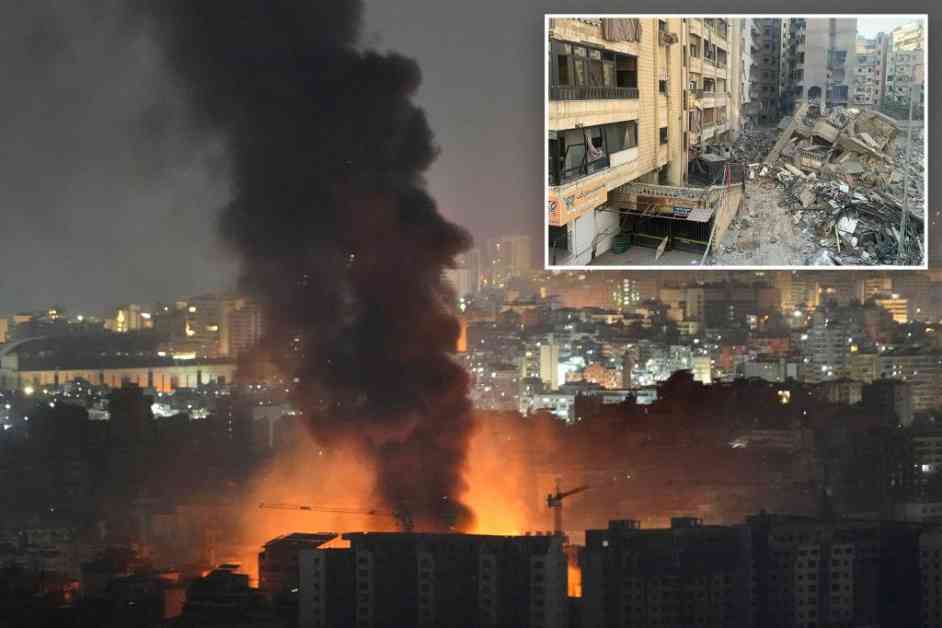Israel launched a series of heavy airstrikes on Beirut’s southern suburbs early on Friday morning, targeting Hezbollah facilities and assets. Residents were given evacuation orders before the strikes hit the densely populated urban area, marking the first such attack in days. The conflict between Israel and Iran-backed groups Hamas and Hezbollah has been ongoing for over a year, with no signs of slowing down.
Despite efforts by the US to broker a ceasefire in Gaza and Lebanon, the situation remains dire. US Secretary of State Antony Blinken mentioned that both Israel and Lebanon are working towards understanding the requirements of implementing UN resolution 1701 to end the conflict. However, with the US elections approaching on November 5th, time is running out for a resolution to be reached. Reports that US envoy Amos Hochstein may not be traveling to Beirut from Israel have left Lebanese officials and analysts feeling pessimistic.
The violence in Lebanon has reached alarming levels in the past five weeks, resulting in a significant number of casualties. The Lebanese health ministry reported 2,800 deaths in the past 12 months, with the majority occurring in the recent escalation of conflict. The prime minister of Lebanon had expressed hope for a ceasefire deal with Israel to be announced soon, with a draft agreement circulating that proposed an initial 60-day truce.
The situation in Beirut’s southern suburbs remains tense, with the aftermath of the Israeli airstrikes leaving rubble and destruction in its wake. The ongoing attacks have taken a toll on the residents of the area, who continue to face the brunt of the conflict. As diplomatic efforts struggle to make progress, the people of Lebanon are left to endure the consequences of the violence that shows no signs of abating.

